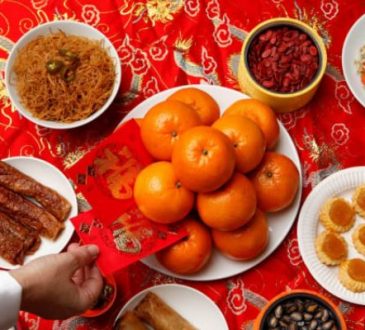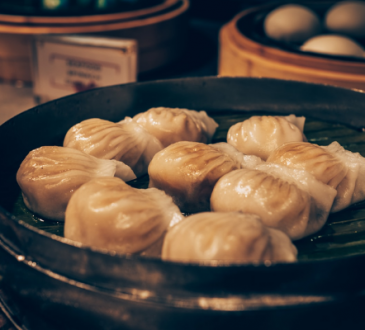Can You Eat Chinese Food While Pregnant? Exploring Safety and Nutritional Considerations
Can You Eat Chinese Food While Pregnant? Pregnancy is a delicate time for women, as they strive to maintain a balanced diet to support both their own health and the development of their growing baby. However, concerns often arise regarding the safety of certain foods, including Chinese cuisine, due to varying ingredients, cooking methods, and potential health risks. In this article, we will delve into the safety and nutritional considerations of consuming Chinese food during pregnancy, addressing common concerns and offering practical advice for expecting mothers.
Contents
Understanding Chinese Cuisine

Chinese cuisine is renowned for its diverse flavors, ingredients, and cooking techniques. From stir-fries to steamed dishes, Chinese food encompasses a wide array of culinary delights that appeal to many palates. However, the vastness of Chinese cuisine also means that ingredients and preparation methods can vary greatly depending on regional influences and individual recipes.
Common Ingredients in Chinese Food
Before delving into the safety of Chinese food during pregnancy, it’s essential to understand the typical ingredients used in this cuisine. Some common components include:
- Rice: A staple in Chinese cuisine, rice serves as a primary source of carbohydrates and energy.
- Vegetables: Chinese dishes often feature a variety of vegetables such as bok choy, broccoli, cabbage, and carrots, providing essential vitamins, minerals, and fiber.
- Protein sources: Chinese recipes incorporate various protein sources, including chicken, beef, pork, seafood, tofu, and eggs, which are crucial for fetal development and maternal health.
- Sauces and seasonings: Soy sauce, oyster sauce, hoisin sauce, and various spices are frequently used to enhance the flavor of Chinese dishes.
Safety Concerns and Considerations

When it comes to eating Chinese food during pregnancy, several safety concerns warrant attention. These include:
- Foodborne Illnesses: Like any cuisine, Chinese food can pose risks of foodborne illnesses if not prepared and handled properly. Pregnant women are particularly susceptible to infections caused by bacteria such as Salmonella and Listeria, which can lead to severe complications, including miscarriage and preterm birth.
- Sodium Content: Some Chinese dishes, especially those prepared with soy sauce and other condiments, may contain high levels of sodium. Excessive sodium intake during pregnancy can contribute to high blood pressure and fluid retention, potentially increasing the risk of complications such as preeclampsia.
- Mercury in Seafood: Seafood is a common ingredient in Chinese cuisine, but certain types, such as shark, swordfish, king mackerel, and tilefish, are high in mercury. Pregnant women should limit consumption of these fish to avoid mercury exposure, which can harm the developing nervous system of the fetus.
Safe Practices for Enjoying Chinese Food During Pregnancy
Despite the potential risks, pregnant women can still enjoy Chinese cuisine by following these safe practices:
- Choose reputable restaurants: Opt for restaurants with a reputation for cleanliness and food safety. Check for proper hygiene practices in food preparation areas and ensure that ingredients are fresh and properly cooked.
- Cook at home: If possible, prepare Chinese dishes at home using fresh ingredients. This allows you to have better control over cooking methods and ingredient quality.
- Avoid raw or undercooked foods: Steer clear of dishes containing raw or undercooked ingredients, such as sushi, raw seafood, and eggs. Ensure that meats are cooked thoroughly to eliminate the risk of foodborne illnesses.
- Opt for steamed or stir-fried dishes: Choose steamed or stir-fried dishes over deep-fried options to reduce unnecessary oil and fat intake. Request dishes with less salt or sauces on the side to moderate sodium consumption.
- Be mindful of portion sizes: Practice moderation when indulging in Chinese food during pregnancy. Opt for smaller portion sizes and pair dishes with nutrient-rich sides such as steamed vegetables and brown rice.
Nutritional Benefits of Chinese Food During Pregnancy

Despite the safety considerations, Chinese cuisine offers several nutritional benefits that can support a healthy pregnancy:
- Abundance of vegetables: Chinese dishes are often rich in vegetables, providing essential vitamins, minerals, and fiber necessary for fetal development and maternal health.
- Lean protein sources: Many Chinese recipes incorporate lean protein sources such as tofu, chicken, and fish, which are vital for fetal growth and maternal tissue repair.
- Balanced flavors: Chinese cuisine emphasizes a balance of flavors, including sweet, sour, salty, bitter, and umami, which can help satisfy pregnancy cravings and prevent excessive consumption of unhealthy foods.
- Versatility: Chinese cuisine offers a wide range of dishes to suit various dietary preferences and nutritional needs during pregnancy, making it easier for expecting mothers to maintain a balanced diet.
Conclusion: Can You Eat Chinese Food While Pregnant?
In conclusion, enjoying Chinese food during pregnancy is possible with proper attention to safety and nutritional considerations. By choosing reputable restaurants, practicing safe food handling techniques, and making mindful dietary choices, pregnant women can savor the flavors of Chinese cuisine while supporting their own health and the well-being of their developing baby. As always, it’s essential to consult with a healthcare provider or nutritionist for personalized dietary guidance during pregnancy. With careful planning and moderation, Chinese food can be a delicious and nutritious addition to a well-rounded pregnancy diet.



